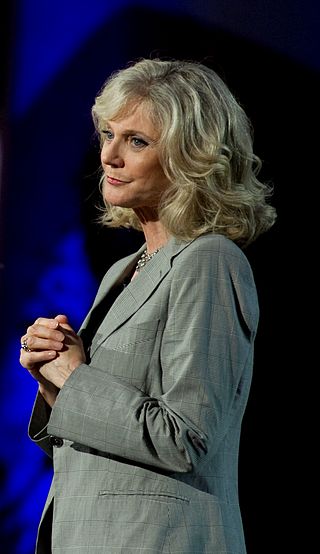
Blythe Katherine Danner is an American actress. Accolades she has received include two Primetime Emmy Awards for Best Supporting Actress in a Drama Series for her role as Izzy Huffstodt on Huff (2004–2006), and a Tony Award for Best Featured Actress for her performance in Butterflies Are Free on Broadway (1969–1972). Danner was twice nominated for the Primetime Emmy for Outstanding Guest Actress in a Comedy Series for portraying Marilyn Truman on Will & Grace, and the Primetime Emmy for Outstanding Lead Actress in a Miniseries or Movie for her roles in We Were the Mulvaneys (2002) and Back When We Were Grownups (2004). For the latter, she also received a Golden Globe Award nomination.
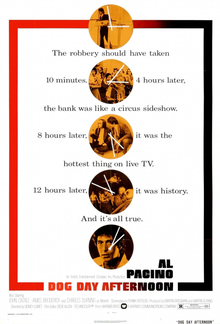
Dog Day Afternoon is a 1975 American biographical crime drama film directed by Sidney Lumet and produced by Martin Bregman and Martin Elfand. The film stars Al Pacino, John Cazale, James Broderick, and Charles Durning. The screenplay is written by Frank Pierson and is based on the Life magazine article "The Boys in the Bank" by P. F. Kluge and Thomas Moore. The feature chronicled the 1972 robbery and hostage situation led by John Wojtowicz and Salvatore Naturile at a Chase Manhattan branch in Brooklyn.

Serpico is a 1973 American biographical crime drama film directed by Sidney Lumet and starring Al Pacino in the title role. The screenplay was adapted by Waldo Salt and Norman Wexler from the book of the same name written by Peter Maas with the assistance of its subject, Frank Serpico. The story details Serpico's struggle with corruption within the New York City Police Department during his eleven years of service, and his work as a whistleblower that led to the investigation by the Knapp Commission.

Larry Jeff McMurtry was an American novelist, essayist, and screenwriter whose work was predominantly set in either the Old West or contemporary Texas. His novels included Horseman, Pass By (1962), The Last Picture Show (1966), and Terms of Endearment (1975), which were adapted into films. Films adapted from McMurtry's works earned 34 Oscar nominations. He was also a prominent book collector and bookseller.

Sidney Arthur Lumet was an American film director. Lumet started his career in theatre before transitioning to film where he gained a reputation for making realistic and gritty New York dramas which focused on the working class, tackled social injustices and often questioned authority.

Marilyn Burns was an American actress. Burns was known for playing Sally Hardesty in The Texas Chain Saw Massacre (1974), which established her as a scream queen and a catalyst of the final girl trope. She reprised the role with a cameo in The Return of the Texas Chainsaw Massacre (1995), and played Verna Carson in Texas Chainsaw 3D (2013), the latter being her last appearance in the Texas Chainsaw Massacre franchise. In 2009, she was inducted into the Horror Hall of Fame at the Phoenix Film Festival.
Paul Alan Partain was an American actor, perhaps best known for his role in the original The Texas Chain Saw Massacre (1974) as the wheelchair-user Franklin Hardesty.
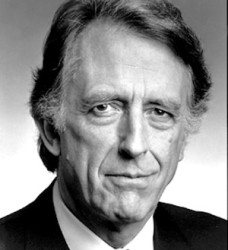
Fritz William Weaver was an American actor. He appeared in over 170 theatre, television, and film productions in a career spanning nearly 60 years.
Paula Michelle Devicq is a Canadian actress, known for her role as Kirsten Bennett on the Golden Globe-winning television drama Party of Five, a role she played between 1994 and 2000.

Swoosie Kurtz is an American actress. She is the recipient of an Emmy Award and two Tony Awards.
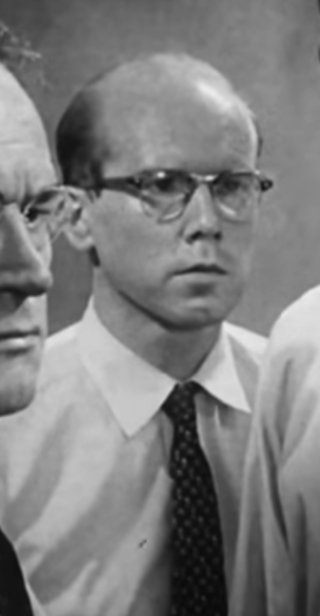
John Donald Fiedler was an American actor. His career lasted more than 55 years in stage, film, television, and radio. Fiedler's high, flutey voice was instantly recognizable. He was typecast beginning early in his career for delicate, quiet, nerdy characters, although he also played sneaky villains. His roles included the meek Juror #2 in 12 Angry Men (1957); the benign-seeming gentleman who tries to prevent the Younger family from moving into a whites-only neighbourhood in A Raisin in the Sun (1961); the voice of Piglet in Disney's Winnie the Pooh productions; Vinnie, one of Oscar's poker cronies, in the film The Odd Couple (1968); and Emil Peterson, the hen-pecked milquetoast husband on The Bob Newhart Show.
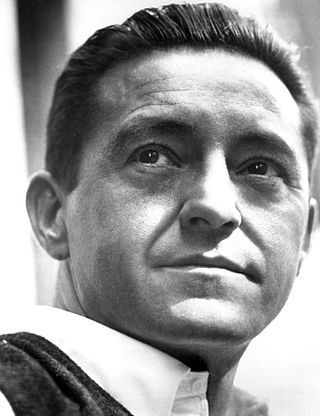
Edward Binns was an American actor. He had a wide-spanning career in film and television, often portraying competent, hard working and purposeful characters in his various roles. He is best known for his work in such acclaimed films as 12 Angry Men (1957), North by Northwest (1959), Judgment at Nuremberg (1961), Fail Safe (1964), The Americanization of Emily (1964), Patton (1970) and The Verdict (1982).
Jaromil Jireš was a director associated with the Czechoslovak New Wave movement.

Sally Hardesty is a fictional character in The Texas Chainsaw Massacre franchise. She made her first appearance in The Texas Chain Saw Massacre (1974) as a young woman investigating her grandfather's grave after local grave robberies—crossing paths with Leatherface and his cannibalistic family in the process. In this film and later in The Next Generation (1995), she was portrayed by Marilyn Burns. Olwen Fouéré was cast in the sequel Texas Chainsaw Massacre (2022). The character, renamed Erin Hardesty and played by Jessica Biel, also appeared in a remake of the original film in 2003.
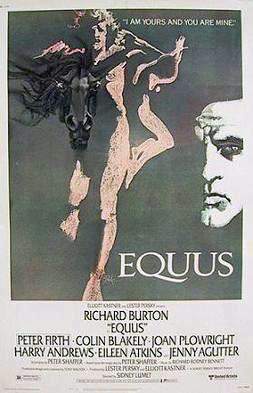
Equus is a 1977 psychological drama film directed by Sidney Lumet and written by Peter Shaffer, based on his play of the same name. The film stars Richard Burton, Peter Firth, Colin Blakely, Joan Plowright, Eileen Atkins, and Jenny Agutter. The story concerns a psychiatrist treating a teenager who has blinded horses in a stable, attempting to find the root of his horse worship.

Rogue Cop is a 1954 American film noir directed by Roy Rowland, based on the novel by William P. McGivern, and starring Robert Taylor, Janet Leigh, and George Raft.

Jaime Luis Sánchez Rodríguez is a Puerto Rican stage, film and television actor, active since the 1950s.
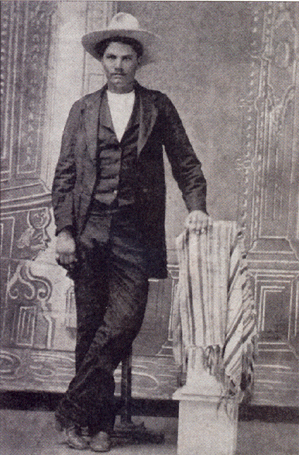
John Wesley Hardin's legacy as an outlaw has made him a colorful character and the subject of various media works from his own time up to the present day. Many people came to know of Hardin through the TV ad for Time-Life Books "Old West" series. During the description of one book in the series The Gunfighters, the well-known claim is made: "John Wesley Hardin, so mean, he once shot a man just for snoring too loud"

Leaving Cheyenne is the second novel written by author Larry McMurtry. It was published in 1963. The novel portrays the lives of people living in Texas from about 1920 to about 1965.
Little Men is a 1998 Canadian family drama film starring Mariel Hemingway and Chris Sarandon. It is based on the 1871 novel of the same name written by Louisa May Alcott, the author of Little Women. It is a loose sequel to Little Women (1994).















